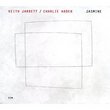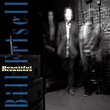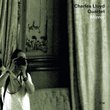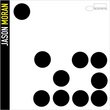| All Artists: Paul Motian Title: Bill Evans Members Wishing: 2 Total Copies: 0 Label: Winter & Winter Release Date: 11/4/2003 Genres: Jazz, Pop Styles: Avant Garde & Free Jazz, Modern Postbebop, Bebop, Tributes Number of Discs: 1 SwapaCD Credits: 1 UPC: 025091904327 |
Search - Paul Motian :: Bill Evans
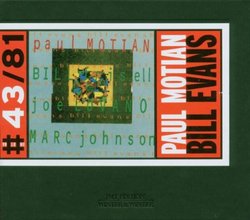 | Paul Motian Bill Evans Genres: Jazz, Pop
|
Larger Image |
CD DetailsSimilar CDs
|
CD ReviewsOne of the finest discs by this partnership M. Bauer | Colorado | 09/26/2006 (5 out of 5 stars) "This disc celebrates songs written (or frequently played by) the iconic jazz pianist Bill Evans. Paul Motian has recorded several exceptional CDs with Bill Frisell and Joe Lovano over the years, and this is one of their finest. Bassist Marc Johnson, who played with Bill Evans in his final great trio, is a perfect addition to the group. The songs are mainly lyrical ballads and mid-tempo pieces. The exception is "Five", which gives Frisell a chance to indulge his more "out" electronic wizard side. Exceptional interplay between the musicians, clear recording, highly recommended" Bringing Bill Back Walter J. Jamieson Jr. | 07/06/2010 (4 out of 5 stars) "This is a wonderful recording: some of Evans's best tunes, sympathetic playing by all, tactfully omitting piano, and Lovano's most sensitive work. Motian's and Johnson's histories with Evans were clearly an important factor when this was made. It starts out flawlessly with Frisell's beautiful intro to 'Show-Type Tune' and a melody statement worthy of Evans himself. 'Turn Out the Stars' and 'Time Remembered' are gorgeous as they should be, and the faster pieces are handled with great skill and aplomb. Highly recommended. \" The Singularity of Bill Evans' Genius Samuel Chell | Kenosha,, WI United States | 08/08/2010 (2 out of 5 stars) "This is at best an unnecessary session and, at worst, a regrettable one. The shimmering, scintillating brilliance of the trio with Scottie LaFaro is no where in evidence let alone the profound, disturbing beauty of the very last trio with Marc Johnson and Joe LaBarbera. During that final year, Evans reached a level of expression virtually unknown in jazz and rare enough in "classical" music--one has to go to the requiems of Mozart and Verdi or the expressionistic works of late Ravel or the dark beauty of Russian composers such as Shostakovich. It is truly "existential" music, exerting an inescapable hold on the listener, a mesmerizing spell that refuses to evaporate for the entirety of the two box sets Bill recorded less than a week before his death--"Last Waltz" and "Consecration." He plays as though his life depends on every note--and, unless we can resist, ours does as well. No artist who approaches this music for what it is--"play"--has, at least in the improvisatory African-American art form we call "jazz," made so clear that the "game" being played is the only game that matters, the only one that deserves our whole, undistracted attention.
To their credit, the musicians have not attempted to find a piano "stand-in" for Evans, whose talent, tone, enormous fingers and powerful shoulders, his perfectly balanced left and right hands, along with the clarity of his aesthetic vision with respect to repertory, melodic/harmonic tensions, dynamic contrasts, and anticipatory rhythm were inimitable--approachable perhaps only by an artist from another form of music but sharing a similar pianistic talent--Rachmaninoff, perhaps. One might quibble about the musician selected (where was Jim Hall?), especially since Evans' music was never eclectic, never "processed" through technological devices--his music is his life--the "terrible beauty" realizable to the anointed one but only at a great price--death and violent suicides of those closest to him, drug addiction, the challenges of being heard at a time when the focus was on groups playing hyped-up "fusion" music, or "programmatic" new-age pieces meant to soothe the ears of those in search of therapy after too many Stones' concerts. His concentrated attention was, first, on the musical "idea"--a melodic phrase by Cole Porter or Jimmy Van Heusen, or a simple phrase ("Your Story," which Evans described in an alternate title as the "doodle-ly-doo song"). And from such germs and scraps of incomplete ideas, creations of unfathomable depth, unreachable majestic heights, and ineffable beauty sprang, exploded--and emanated, naturally and inerrantly, from his giant fingers. There was no groaning or moaning, no manneristic "performance-artist" extracurricular activity, no sleight of hand by these hands, gifted beyond those of virtually any other artist who comes to mind. The focus was exclusively on the music and, soon, on the surge of excitement, joy, dread, and ultimately triumph that seemed to characterize each and every piece. The music on this session predictably salutes the early Bill Evans' material that has received the attention on most of the other Evans' tributes (all about equally successful). The problem: that music is well-documented and is readily available for anyone wishing to go directly to the source--whether the "Kind of Blue" or "Green Dolphin Street" sessions with Miles Davis or the celebrated Riverside releases, primarily "At the Village Vanguard." Perhaps Evans' later music is too complex, too difficult, too elusive for even an approximation of it to occur from other musicians. Many musicians who have heard patches of it (and not many have gotten that far) even fail to understand that Bill never abandoned Duke Ellington's famous criterion about meaning in music. Bill never stopped to "swing": he merely redefined it. The pulse in his late music (start with "The Paris Concert, Vol. 1) is a universal vibration, one that is no less accessible for its difficulty to replicate. It plays out in the attentive listener's mind--again and again--yielding rewards lasting beyond the literal performance itself. To any reader who has come upon one of the two or three greatest poems in English--"Ode on a Grecian Urn" (like Bill, John Keats was a tragic Romantic)--its resounding final lines about truth and beauty could not have a closer correlative than the music, early and late, of Bill Evans as played by Bill Evans. (After "The Paris Concert," Vol. 1, check out "Consecration," Disc 3--the night when Denny Zeitlin starts the set for an ailing Bill Evans, who nonetheless shows up to finish it--proceeding to come perhaps as close as anyone to delivering a sort of "final word" on the potential of jazz piano and the art form itself.)" |

 Track Listings (9) - Disc #1
Track Listings (9) - Disc #1